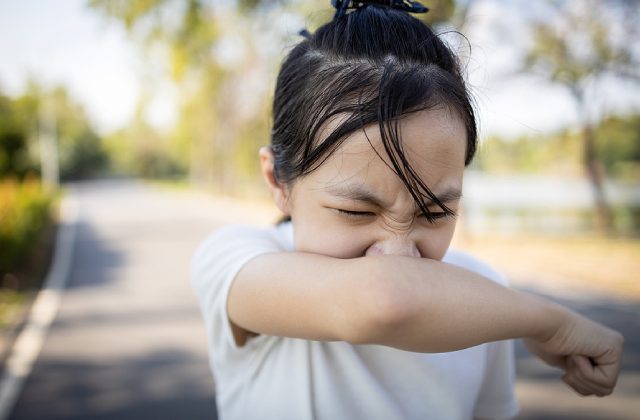
Allergies in children are common and can develop at any age. While they cannot be cured, they can be treated to minimise symptoms and improve your child’s quality of life. If you suspect that your child has an allergy, do bring them to a paediatrician for allergy testing so that an effective treatment plan can be implemented for them.
Read on to learn more about the different types of allergy testing for children and how to prepare for them.
Skin Prick Test
Skin prick tests identify your child’s possible allergies to various environmental, food and drug allergens.
The process is simple:
1. Small drops of each solution containing the allergens are applied to your child’s skin, usually on the back or the inside of their arm.
2. The skin is scratched or pricked on the surface allowing the allergen to be exposed to the skin.
3. If your child is allergic to any of allergens tested, a small, itchy red bump will appear within 15 to 20 minutes. This bump will disappear on its own within a few hours.
The duration taken to perform the skin prick test can vary depending on the number of allergens being tested. You will be able to obtain and discuss the test results with your doctor within the same visit.
Skin prick tests can be conducted in infants even as young as 6 months of age.
Blood Test
Blood tests are typically done for children who cannot do skin prick tests due to skin conditions or ongoing medications (such as antihistamines) that would interfere with skin prick test results. Like skin prick tests, blood tests help to identify allergies to environmental and food allergens.
The procedure is as follows:
1. A needle is used to draw about 5 to 10 ml of your child’s blood.
2. The clinic will send your child’s blood sample to the laboratory for testing for specific allergens of concern. Results are available after about one to two weeks.
These tests measure the level of immunoglobulin E (IgE) antibodies. Higher levels indicate that your child’s immune system overreacts to the allergens, which may lead to an allergic reaction. Blood tests sometimes less sensitive than skin prick tests.
Oral Challenge
Oral challenges are typically done in a few circumstances:
- To assess if your child is outgrowing a food allergy.
- To diagnose a food allergy if a review of your child’s medical history and allergy tests are inconclusive.
They involve giving your child gradually increasing doses of food to eat while being closely monitored in the clinic. Vital signs and symptoms are closely monitored by the medical team before every increase in food consumption. The challenge is stopped with any reactions and reactions are tended to immediately.
Children who safely pass their oral food challenges can go on to consume the foods safely at home. This avoid unnecessary avoidance of allergens which can have a large impact on both the child and family.
How to Prepare For Your Child’s Allergy Testing?
Your child should temporarily stop taking oral allergy medications such as antihistamines and over-the-counter cold medicines a week before the skin prick test, as these can interfere with test results. If your child cannot be taken off these medications, a blood allergy test can be performed instead. Your child should also avoid using topical creams or lotions on the day of the test.
It is recommended that you bring a toy, book, or tablet, to keep your child occupied during their test.
Additionally, if you suspect a food allergy, it would be best to bring a food diary detailing what your child ate and when the reactions occurred to discuss with the doctor during your consultation.
Conclusion
Allergic reactions, even if not life-threatening, can significantly affect your child’s quality of life, restricting their ability to sleep well or attend school. Therefore, it is best to identify these allergies as soon as possible so they can be treated.
If you’re looking for a paediatrician specialising in allergies in Singapore, why not visit our paediatric clinic in Katong? We provide paediatric and allergy services for families living in the East.



